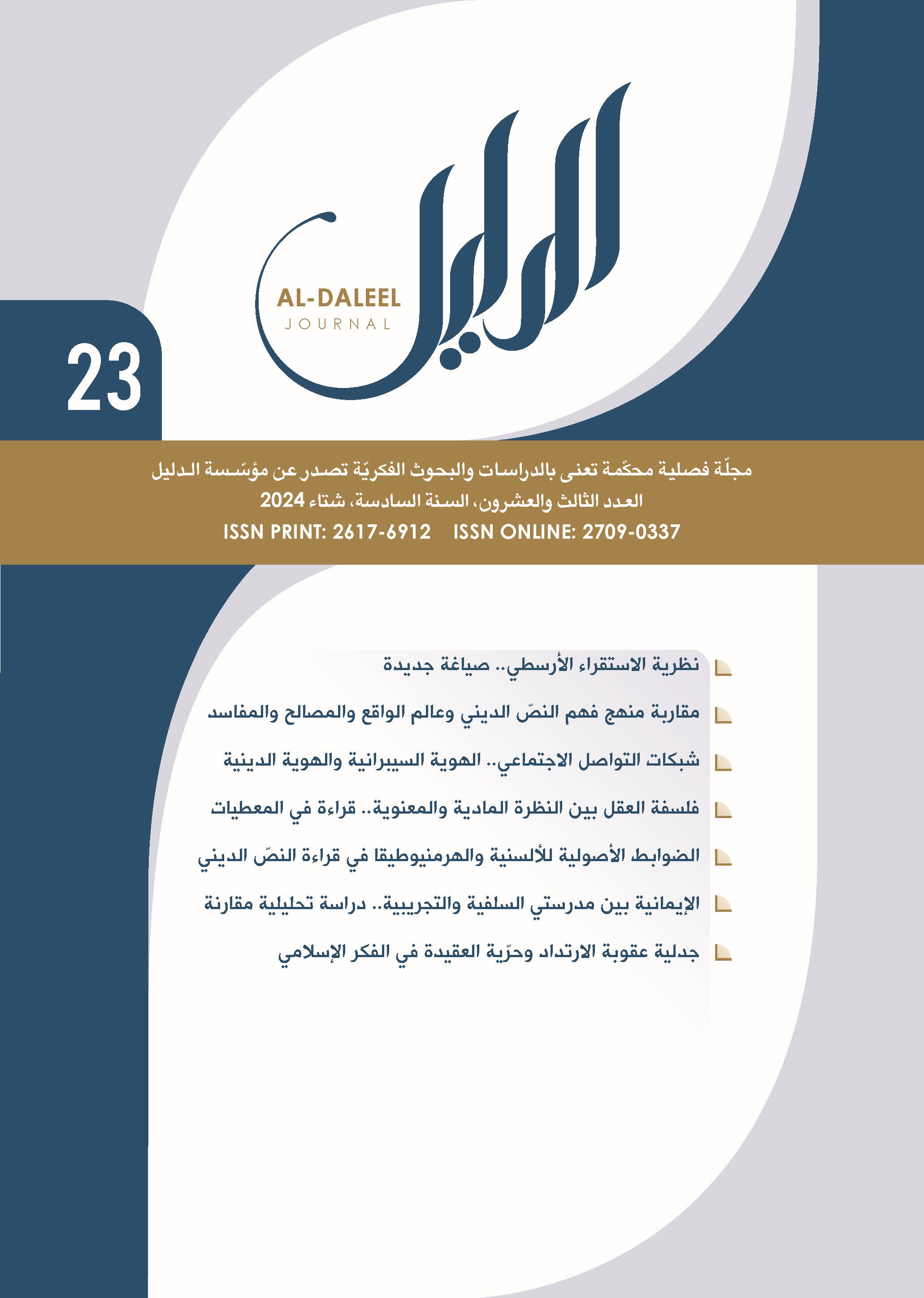Abstract
The study presents a review of the theory of induction according to Aristotle and his followers. It examines the relationship between induction, on the one hand, and syllogism and experiment, on the other hand. It then discusses the so-called problem of induction, or the problem of generalization, and the most important attempts that have been put forward by thinkers to solve it. Among these attempts are the principle of sufficient number, the accumulation of probabilities, and the adoption of the famous Aristotelian rational principle, which states that the accidental is neither continuous nor is it the mostly. The study, then, presents the Sayyid Muhammad Baqir al-Sadr›s report on this principle and the problem that he raised based on his report, in which he showed that the aforementioned principle refers to total knowledge in determining coincidence. He also considered the aforementioned principle to be one of the assumptions that refers to induction. The study discusses what Sayyid al-Sadr decided for the Aristotelian principle, arguing that the explanation that he presented is far from the intention of Aristotelian logic. Consequently, the problem that he raised is invalid because it is based on his own reading, not on what is established in the science of logic. Finally, the study concludes by presenting a new vision for inductive and experimental syllogism.
Keywords
Aristotle
experiment
induction
probability
syllogism
Abstract
هذا البحث عبارة عن استعراض لنظرية الاستقراء عند أرسطو وشرّاحه، وقد تناول البحث بيان العلاقة بين الاستقراء من جهة وبين القياس والتجربة من جهة أخرى، ومن بعدها تعرّضت لما يعرف بمشكلة الاستقراء أو مشكلة التعميم، وأهمّ المحاولات التي طرحت لحلّها من قبل المفكّرين، ومن تلك المحاولات مبدأ العدد الكافي وتراكم الاحتمالات، وكذلك البناء على المبدإ الأرسطي العقلي المعروف الذي مفاده (الاتّفاقي لا يكون دائميًّا ولا أكثريًّا)، ثمّ عرض تقرير السيّد محمدباقر الصدر لهذا المبدإ والإشكالية التي طرحها بناءً على تقريره له، والتي بيّن فيها أنّ المبدأ المذكور يرجع إلى العلم الإجمالي في تحديد الصدفة، كما أنّه عدّ المبدأ المذكور من المصادرات التي ترجع إلى الاستقراء فيلزم الدور، وقد جرت مناقشة ما قرّره السيّد الصدر للمبدإ الأرسطي، فإنّ القراءة التي قدمها بعيدة عن مراد المنطق الأرسطي، وبالتالي فإنّ الإشكالية التي طرحها غير واردة؛ لأنّها مبنيّة على قراءته الخاصّة لا المقرّر في علم المنطق، وأخيرًا انتهينا إلى طرح صياغة جديدة للقياس الاستقرائي والتجربي.
Keywords
أرسطو
احتمال
استقراء
تجربة
قياس
